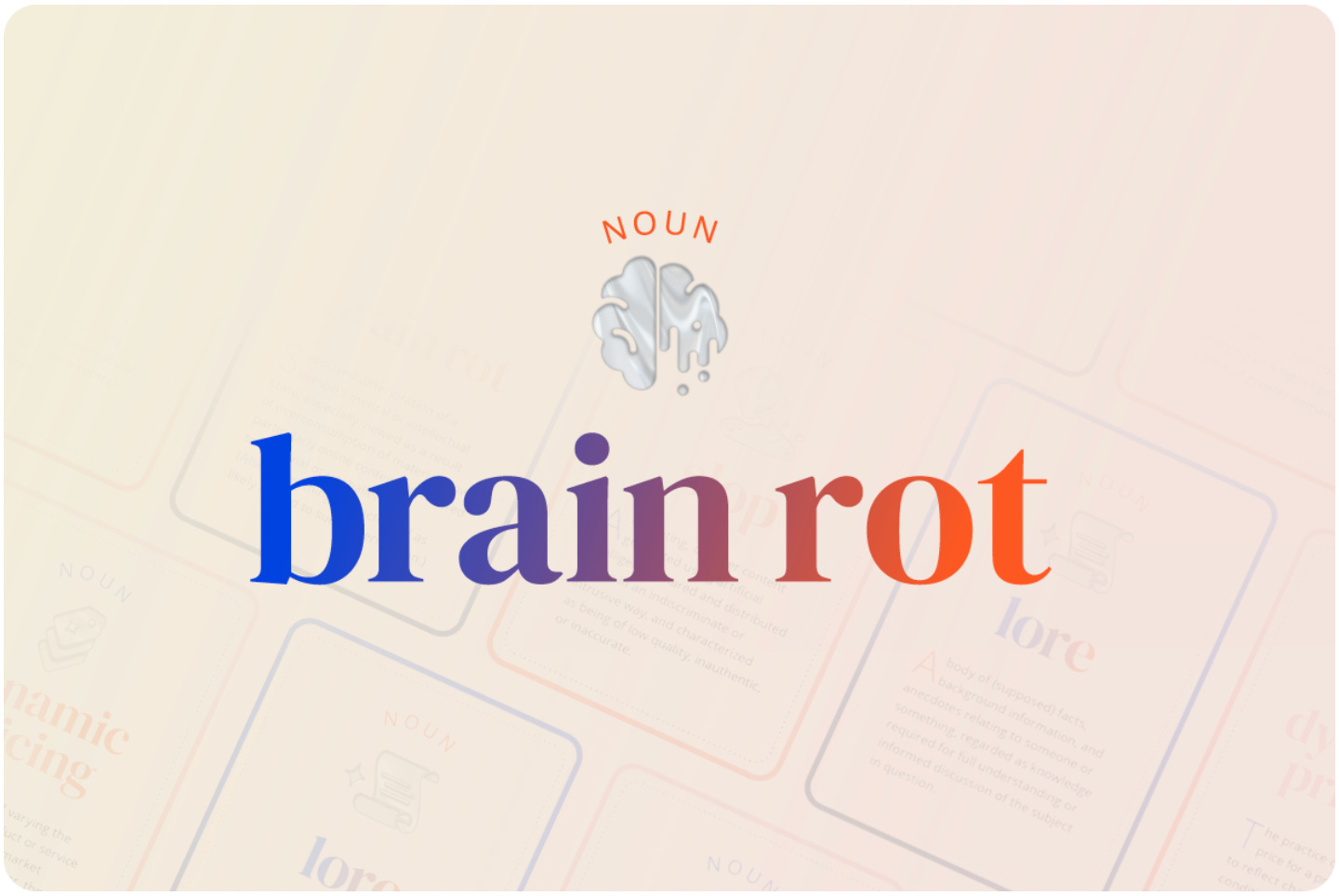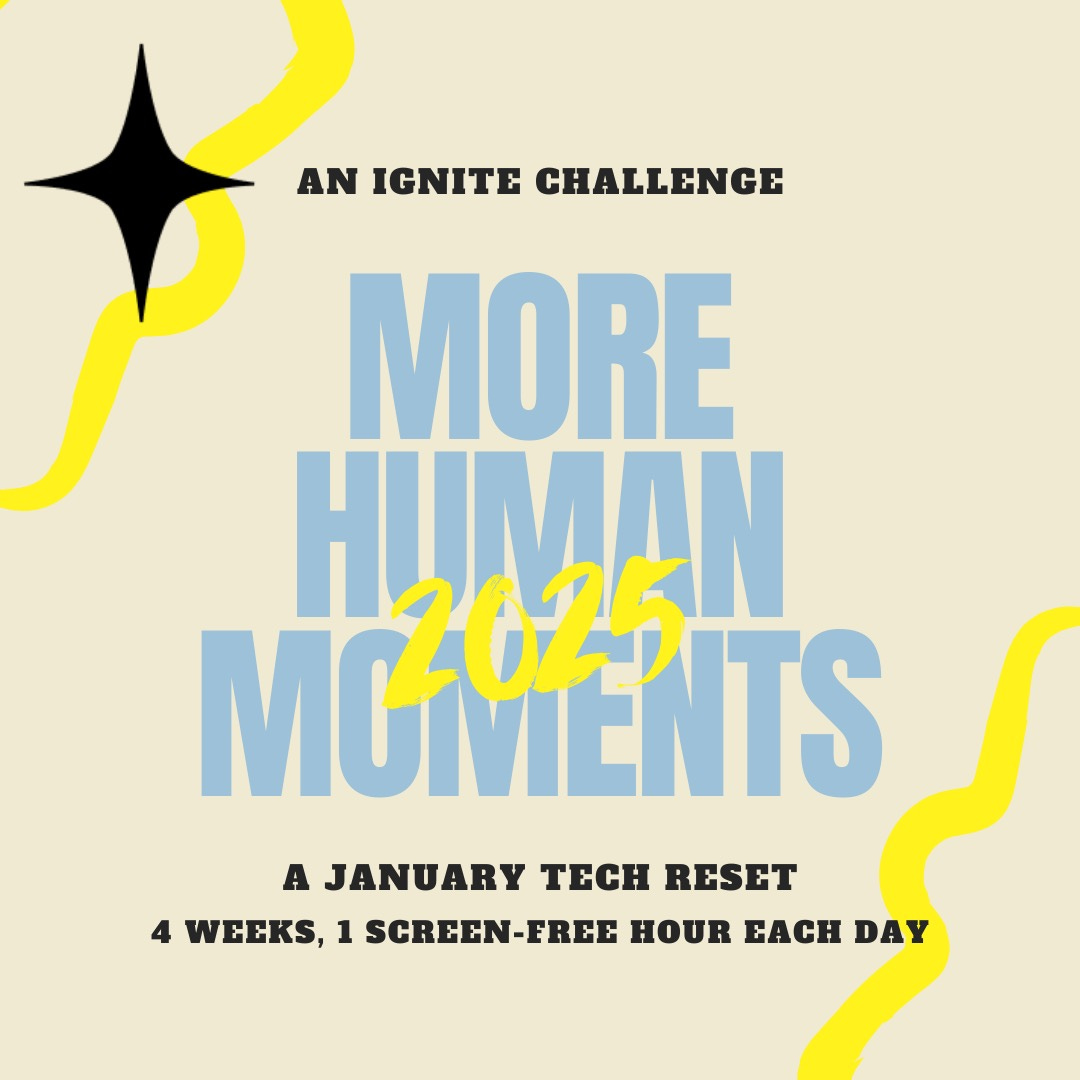Nothing captures our current cultural zeitgeist quite like Oxford's word of the year.
And, in 2024, Oxford selected….drumroll please….
Brain rot (n.) is defined as the “supposed deterioration of a person’s mental or intellectual state, especially viewed as a result of overconsumption of material (now particularly online content) considered to be trivial or unchallenging. Also: something characterized as likely to lead to such deterioration.”
Casper Grathwohl, the President of Oxford Languages, explains why the dictionary heavyweight chose brain rot to encapsulate this last year:
‘Brain rot’ speaks to one of the perceived dangers of virtual life, and how we are using our free time. It feels like a rightful next chapter in the cultural conversation about humanity and technology. It’s not surprising that so many voters embraced the term, endorsing it as our choice this year.1
Ignite exists to propel the “cultural conversation about humanity and technology” into a stage where everyone is proactive about their technology use, a stage where the question, “Does this technology enhance or diminish my humanity?” is asked of every new technology by everyone.
Technology offers us a limitless stream of media, people, and ideas to consume and engage with.
We pay for this with our time and attention.
Over time, misaligned incentives, algorithmic design, and collective action traps2 erode our capacity to feel truly alive—to feel human.
The term "brain rot" captures the true cost of our technology-dominated world. Our minds thrive on challenge and engagement, and mindless technology—called mindless because it requires no active mental effort—is steering us toward a less human, more robotic existence.
Humanness demands a multi-dimensional approach to life: a commitment to deep relationships with loved ones, ourselves, the natural world, and the divine.
Technology should serve as a facilitator—not a mediator or substitute—for these essential connections.
So, to kickstart 2025, we’ve designed a challenge to help people (including ourselves) overcome addictive or destructive tech habits, and, ultimately, feel more human.
Beginning January 5th, commit to one consecutive hour of screen-free time each day for 4 weeks.
No phones, no TV in the background—just time to focus on something real.
Oxford University Press. "Oxford Word of the Year 2024." Oxford Languages, Oxford University Press, 2024
Dubner, Stephen J. "Are You Caught in a Social Media Trap?" Freakonomics Radio, Freakonomics, 13 Dec. 2023.


